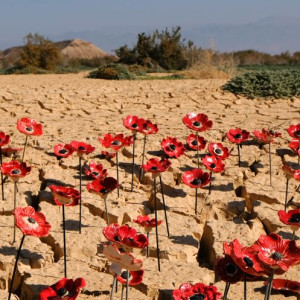Blog
August 5, 2022
Survivor Portraits – Dasia Black Gutman
This month we share the story of Holocaust survivor, Dasia Black Gutman.

Born in Rzeszow, Poland on 8 February 1938, Dasia was just one and a half years old when the Nazi party invaded the Eastern part of the country.
When she was just four years old, her parents, Chana and Szulem, were forced to make the ultimate sacrifice to keep their daughter safe: they left her with a Polish Catholic woman.
On 30 November 1942, her father wrote:
“I am compelled to hide my precious infant branch, my little daughter, may she live, until the storm passes. It is difficult for me to describe the sorrow and the pain that gnaws at my heart when I see that my bright little daughter cannot understand why she is being taken away from the arms of her parents.”
In hiding, Dasia would take on a Christian alias: Stasia. Under this new name, she hid her distress, ate unfamiliar food, prayed to a God she did not know, and, over time, grew further removed from who she was.
“I was nobody’s child,” she reflects.
Dasia would never see her parents again. After the war, she was adopted by her aunt and uncle.
Dasia emigrated to Australia in 1951, where she married, had two sons and five grandchildren.
A pervasive fear of abandonment followed her into adulthood.
Dasia dedicated her life to working with children experiencing trauma. She became a university lecturer in child development and came to understand some of her own anxieties this way. She says:
“In my research, I delved into the area of prejudice and racism, and came to understand that what was holding me back was within me: a type of internalised oppression.”
In this image taken at the Museum, Dasia holds a photo of her parents close to her heart. She was four years old and living as an Aryan child when her mother and father were deported to Zbaraz ghetto and later murdered.
To this day, Dasia knows little about how and when they were killed.
To read more from our Survivor Portraits blog series, click here.
To explore the personal stories and anecdotes of Holocaust survivors, click here for our first online exhibition.
Photograph by Katherine Griffiths.






What’s On Newsletter
Keep up to date on all Museum events and exhibitions.